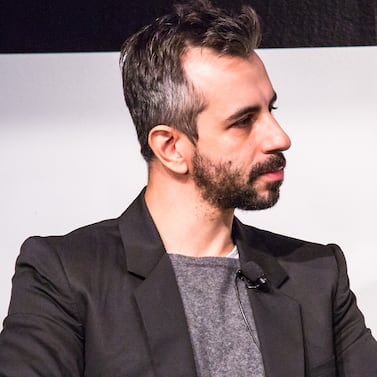
Agenda-setting intelligence, analysis and advice for the global fashion community.

Agenda-setting intelligence, analysis and advice for the global fashion community.

Daydream, a new AI-based shopping platform from retail and e-commerce veteran Julie Bornstein, has raised $50 million in seed funding.
Co-leading the round were Forerunner Ventures and Index Ventures, while GV — the venture-capital arm of Google parent Alphabet Inc. — and True Ventures also participated.
Full details on Daydream, which is set to launch in beta this fall, haven’t yet been revealed, but Bornstein said it will be a search and discovery platform for fashion that’s inherently built on the capabilities of generative AI, rather than just seeking to tack AI features onto the usual e-commerce experience. It will use advancements in AI fields such as natural-language processing and computer vision to allow shoppers to search for products in different ways using text and images and narrow down results through conversation with an AI agent, which Bornstein said will be more than the standard AI chatbots that understand context and recommend products from a retailer’s catalogue.
Bornstein’s last e-commerce venture was The Yes, an app that used AI to personalise the products users saw in their feeds. In 2022, Pinterest acquired the company for $87.6 million in cash, according to a regulatory filing, and Bornstein joined the social network as its chief shopping officer. She moved into an advisory role in January 2023 and left Pinterest in July of that year, starting work on Daydream that month.
ADVERTISEMENT
“We are taking a big swing, and we think this is the right time to do it,” she said.
Daydream won’t carry inventory but will collect a commission on sales, which will still happen on the sites of its brand and retail partners. Nearly 2,000 brands spanning emerging Gen-Z labels to luxury are already part of its catalogue through partnerships with retailers and the brands themselves, including Net-a-Porter, Alo Yoga, Jimmy Choo and Doen. The aim is to ultimately have every brand and retailer as a partner, according to Bornstein.
Funding has continued pouring into generative-AI projects, even as investors have grown choosier and pulled back overall. In the first quarter of 2024, total venture-capital investment in generative AI reached $3 billion globally, according to an estimate from EY.
Many start-ups in the space are either building foundational AI models or business-to-business applications, but Bornstein said they wanted to go after one of the first big consumer-facing plays based on the technology. Her co-founders in the start-up — Matt Fisher, Dan Cary, Lisa Green and Richard Kim — have backgrounds spanning technology and retail, with time spent at companies including Microsoft, Amazon, Google and The Yes.
“What’s really exciting is when you have the combination of a great team with a very relevant and justified use of AI,” said Danny Rimer, partner at Index Ventures. (Index Ventures is an investor in The Business of Fashion.)
Index Ventures reached out to Bornstein before it knew she was working on Daydream, according to Rimer. It had come up with a thesis that AI would enable big advancements in e-commerce, which it believed hadn’t fundamentally changed in two decades. It contacted Bornstein because of her long experience in retail and e-commerce, including executive roles at Stitch Fix, Sephora, Nordstrom and Urban Outfitters.
“We were absolutely convinced by Julie and by the Daydream founding team,” he said.
Editor's Note: This story was amended on June 20, 2024, to remove the name of one brand that said a partnership with Daydream was not yet confirmed.
Online retailers are looking to algorithmic personalisation as a way to carry a vast inventory but still show shoppers products that match their individual tastes. It’s the same idea that powers Spotify and TikTok, but pulling it off in fashion isn’t easy.
The extraordinary expectations placed on the technology have set it up for the inevitable comedown. But that’s when the real work of seeing whether it can be truly transformative begins.
A new wave of ChatGPT assistants from companies like Shopify and Kering could transform how we shop online. It’s unclear how well they actually work, so BoF took them for a spin.

Marc Bain is Technology Correspondent at The Business of Fashion. He is based in New York and drives BoF’s coverage of technology and innovation, from start-ups to Big Tech.
Digital product passport technology could tackle counterfeiting, help brands meet regulatory requirements and unlock new sources of revenue and engagement. Michele Casucci, founder and GM of Certilogo and Robin Mellery-Pratt, BoF’s head of content strategy, gathered executives in Paris to discuss its potential.
The search giant is rebuilding its shopping experience around AI, rolling out new features like personalised product feeds and AI-powered shopping guides, beginning this week.
To boost sales and create a better customer experience, companies are revamping the e-commerce search bar to make it easier for shoppers to find products or even shop in new ways.
Concerns are growing that the technology’s transformative power has been oversold. Kamali, on the other hand, is as convinced as ever that, for her at least, it marks the start of a new creative era.